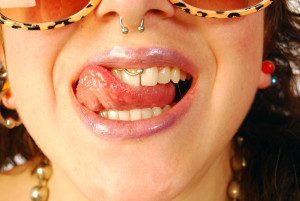 The list of sports where one’s mouth could get seriously injured is nearly endless. So using mouth guards to protect your teeth has been commonplace for decades. But with the advent of new materials and additional research, mouth guards now have an equally long list of things they can be used for.
The list of sports where one’s mouth could get seriously injured is nearly endless. So using mouth guards to protect your teeth has been commonplace for decades. But with the advent of new materials and additional research, mouth guards now have an equally long list of things they can be used for.
Types of mouth guards
Let’s start with the cheapest and most basic, the so-called stock mouth guard. Available at most pharmacies and sporting goods stores, they come in basic small, medium and large sizes. So guess what that means. Correct, they are uncomfortable for people in between “normal” sizings. They also are meant to provide basic protection during sports, so they typically just cover the upper teeth. Nonetheless, the American Dental Association has given its Seal of Acceptance to some stock mouth guards. So try to find a brand with that marking.
Taking it up a notch is what’s called the boil-and-bite mouth guard. It’s also available in most drug stores and sporting goods establishments and is not much more expensive than its stock counterpart. The big difference is that when you get this type of mouth guard home, following package directions you boil it in water and then place it in your mouth so the material can form fit to the shape of your teeth and jawline. In some cases, you’ll find this type of mouth guard protects both bottom and upper teeth, but most common is the upper protection kind.
Enter the dentist. He or she can make a customized mouth guard for you by taking a mold of your teeth. While this process is a bit more pricey, it creates literally the perfect fit for your mouth and makes it very hard to accidentally dislodge your mouth guard during sleep or physical activity. Some dental insurance plans help cover the cost of customized mouth guards, so it’s worth checking out this option.
Which mouth guard for what situation
Teeth grinding and the three esses—sports, snoring and sleep apnea. Those are the four situations where a mouth guard can guard you from injury, discomfort or worse. The basic rule of thumb in the sports world is the higher impact sport you play, the more customized your mouth guard should be. Customization means fit, and fit is what keeps your mouth guard from dislodging during a tackle or a punch.
Sleep apnea—just breathe
Let’s start with the most serious issue, sleep apnea—a sleep disorder where a person temporarily stops breathing during sleep. On the mild side of things, this can cause snoring and also grogginess in the morning due to lower quality sleep. On the not-so-mild side of things, sleep apnea prevents you from getting sufficient oxygen to your brain for periods of time. This causes a significant increase to your risk of both heart disease and stroke.
Clearly, all this is good cause for erring on the side of getting the more expensive mouth guard your dentist can custom fit for you. The mouth guard helps with sleep apnea because it pushes your lower jaw and tongue slightly forward, which keeps your airway from shutting off. Ask your dentist about using a mouth guard with a strap that goes around your head and chin to re-adjust the position of your lower jaw.
When it comes to severe forms of sleep apnea, you should be consulting your medical doctor, too. In extreme cases, you’ll be prescribed a CPAP machine to keep your airway open. You’ll look a little like the lovechild of Darth Vader and an elephant, but you’ll wake up alive.
Teeth clenching—the nightly grind
The fancy word for grinding or clenching your teeth is bruxism. At its core, bruxism is a movement disorder affected during sleep. It’s known to cause a variety of issues, from tooth pain and tooth damage to jaw pain and irritated gums. The key to getting the right mouth guard in this situation has to do with fit, so the more custom the better. Some health professionals recommend getting the boil-and-bite version and giving it a week or so to determine if it’s helping. If it’s dislodging in the middle of the night, go to your dentist and have him or her set you up with a custom-made mouth guard.
Snoring—the ABZs of better sleep
Consider the impact snoring is having on your sleep and your life when choosing which mouth guard to use. All of them will help in reducing the vibrations in your upper airway by pulling your lower jaw forward thus keeping your airway more open. If your snoring is so pronounced it’s keeping you or your sleep partner from getting a good night sleep, once again err on the side of the more customized fit. It may be the pricier option, but dentists are still cheaper than divorce lawyers.







Leave a Reply